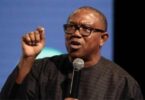On resumption from the two-month recess, the House of Representatives is expected to commence debate on the general principles of a bill which seeks to establish Non-Oil Solid Minerals Resources Producing Communities Development Commission.
The private member bill sponsored by Hon. Philip Agbese explained that the legislation was aimed at ensuring the diversification of the Nigerian economy through the application of Nigerian Content principles to transactions in the non-oil and gas sector of the Nigerian economy; development of domestic capacities and capabilities in the value chain of some critical sectors like ICT, Mining, Power, Maritime, Manufacturing, Health, agriculture, among others, in the Nigerian economy through strategic investments, education, skills transfer, expertise development, transfer of technology and know-how and active research and development programmes.
The proposed bill also seeks to promote the achievement of minimum local employment level and in-country spending for the provision of goods and services in value chains of the various sectors of the Nigerian economy; strengthen international competitiveness of Nigerian domestic businesses; achievement and maintenance of control by Nigerians over the economic developmental initiatives and activities in Nigeria; as well as the provision of a robust and transparent monitoring and reporting system to ensure delivery of Nigerian Content policies; and
(vii) supervision and coordination of the implementation and monitoring of Nigerian capacities and capabilities in the Nigerian economy.
When established, the Commission will be responsible for the administration of Mineral titles and the maintenance of the registers; establish Register of Reconnaissance Permits, Exploration Licenses, Mining Leases, Small Scale Mining Leases, and Quarry Leases, among others.
As provided in Clause 2 of the bill, the bill Commission is to maintain programmes for the overall development of the Nigerian economy, more especially, to encourage the growth of Nigerian industries, services, and technologies in order to raise the standard of living of persons living in Nigeria to a reasonable level.
It will also ensure the active participation of Nigerians in the economic development and diversification in respect of any transaction in which: any public fund belonging to the Federal Government of Nigeria or any of its arms and/or agencies is used in any sector of the Nigerian economy to which this Bill applies: in donor or loan funded projects undertaken in Nigeria in any sector of the Nigerian economy to which the provisions of this Bill are applicable: and in activities carried out by any entity in possession of an investment agreement with any arm of the Federal Government of Nigeria or any of its agencies in any of the sectors.
Clause 2(3) further provided for the prioritization of Nigerian citizens in employment in all activities where public money belonging to any arm or agency of the Federal Government of Nigeria is used, in any sector of the Nigerian economy, in donor or loan-funded projects and in activities carried out by any entity in possession of an investment agreement with any arm of the Federal Government of Nigeria or any of its agencies; the encouragement of the transfer of skills and technology to Nigerians in the course of the execution of projects undertaken in Nigeria in any sector where the provisions of this Bill apply.
It also seeks to ensure the development and implementation of Nigerian Content Plans and Programmes by persons carrying out public works and persons in possession of a permit, license, lease, or approvals in respect of any activity regulated by any arm and or agency of the Federal Government of Nigeria; development of the domestic capacities in the value chain of the Nigerian economy through education, skills transfer and expertise development, transfer of technology and know-how and active research and development programmes; as well as the achievement of minimum local employment level and in-country spend for the provision of the goods and services in the value chain of the Nigerian economy.
. TheWitness







